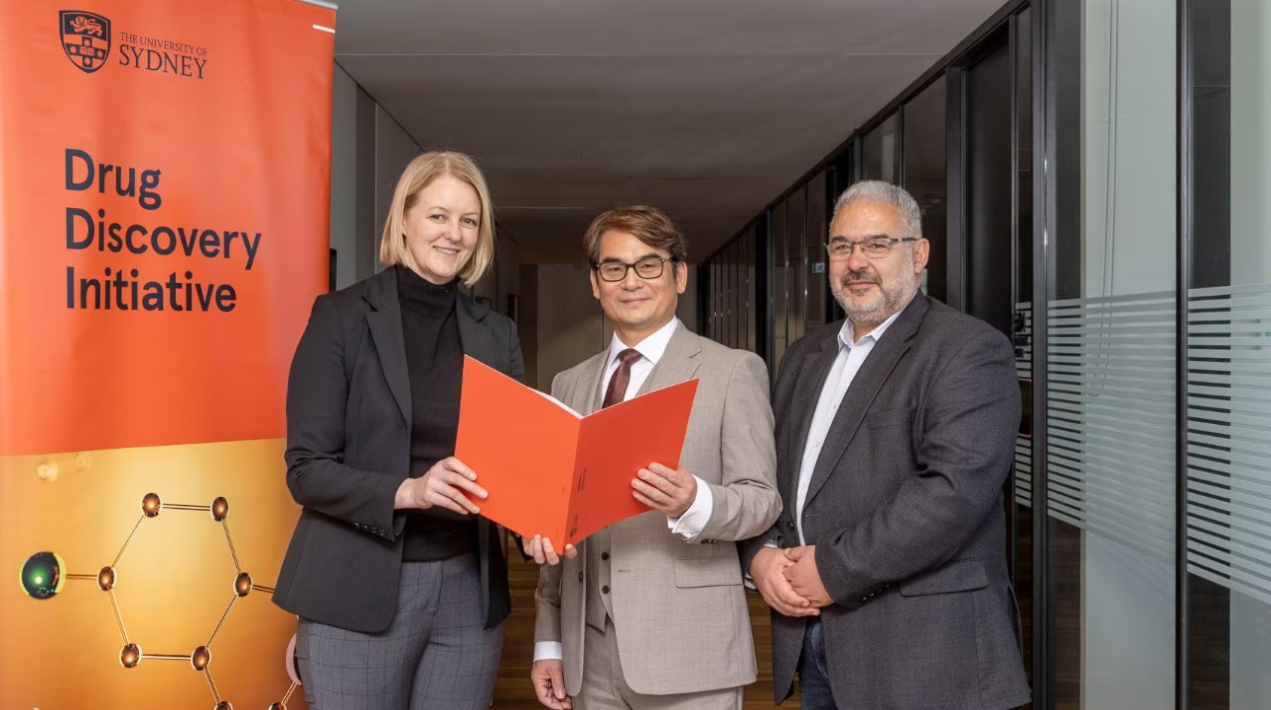
The University of Sydney recently entered into a memorandum of understanding (MoU) with the Australian subsidiary of a pharmaceutical company based in South Korea. The partnership aims to leverage the power of artificial intelligence in identifying potential compounds for accelerated development into treatments for cancers and rare diseases.
Under the MoU, the University’s Drug Discovery Initiative will gain access to the pharmaceutical company’s advanced AI drug development platform, known as Chemiverse. This collaboration will enable the University to harness the capabilities of AI in identifying promising compounds for drug development. Additionally, the company will benefit from collaborating with the University’s esteemed team of researchers and using their cutting-edge drug discovery infrastructure.
The Director of the Drug Discovery Initiative expressed enthusiasm about the collaboration with the company. He highlighted the complexity involved in developing drugs for treating diseases and emphasised the significance of working with Pharos and their advanced artificial intelligence platform, Chemiverse.
The use of Chemiverse in this partnership is expected to greatly enhance the University’s capacity to develop innovative treatments for unmet medical needs. Moreover, the synergies between the platform and the Drug Discovery Initiative will foster innovation and facilitate the establishment of new drug discovery pipelines.
The Drug Discovery Initiative, situated within the School of Chemistry, serves as an interdisciplinary academic network that aims to expedite the early-stage development of drugs by leveraging top-tier individuals, technologies, and tools.
The Pro-Vice-Chancellor (Research Enterprise) emphasised the University’s dedication to translating fundamental research into practical solutions. The partnership with the company is viewed as an opportunity to capitalise on the expertise housed within the Drug Discovery Initiative. Together, they strive to advance the development of potentially life-saving targets for cancer and rare diseases.
The co-CEO of the company’s Australia branch expressed excitement about collaborating with the University and the Drug Discovery Initiative. He said the use of state-of-the-art infrastructure to accelerate drug discovery efforts.
The firm’s Chemiverse platform is a versatile tool that can be employed across the entire spectrum of new drug development, encompassing target discovery to lead compound generation. This advanced platform incorporates a vast amount of big data, approximately 230 million data points, and uses advanced algorithms to facilitate the drug development process.
The company is actively engaged in ongoing research and development as well as commercialisation efforts using the Chemiverse platform. They are currently working on approximately 10 pipeline projects, which include the development of a treatment called “PHI-101” for acute myeloid leukaemia. Notably, PHI-101 is currently undergoing phase 1b clinical trials.
On the other hand, the Drug Discovery Initiative plays a prominent role in the development of new compounds and the identification of collaborative pipelines. They are highly active in their pursuit of advancing drug discovery and forging partnerships in this field.
In March, the NSW Government provided funding for the establishment of the NSW Organoid Innovation Centre. This state-of-the-art facility is a collaborative initiative involving multiple institutions. It focuses on using cutting-edge stem-cell techniques to expedite the process of drug discovery and design.
The pharmaceutical company, earlier this year, became a part of the Sydney Knowledge Hub, which serves as a startup incubator and coworking space located at the University of Sydney. This strategic collaboration aims to foster partnerships and facilitate seamless collaboration between industry and the research community in Sydney.
















